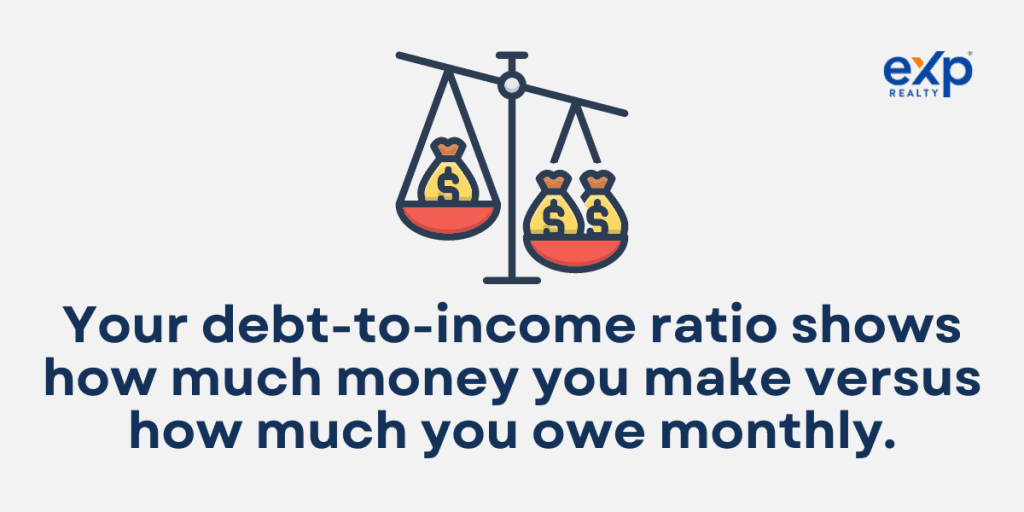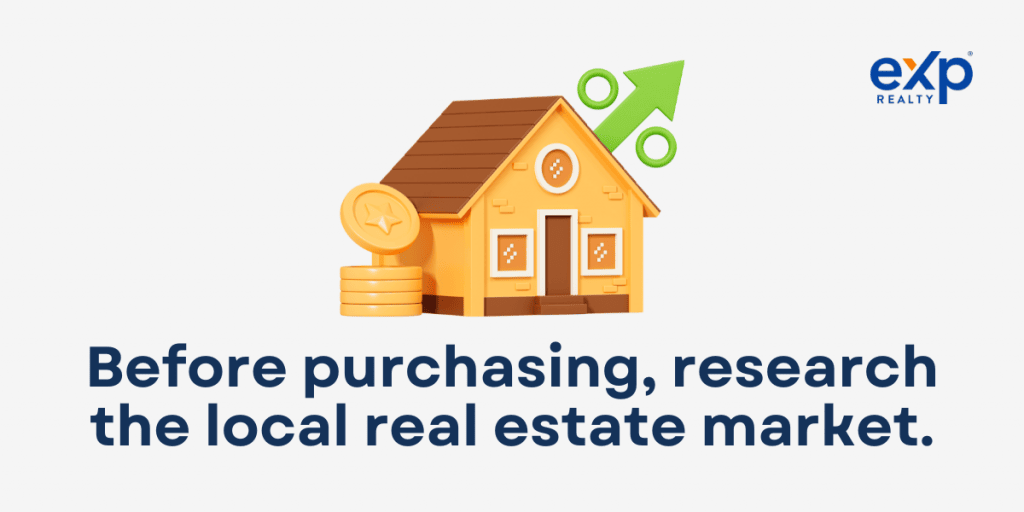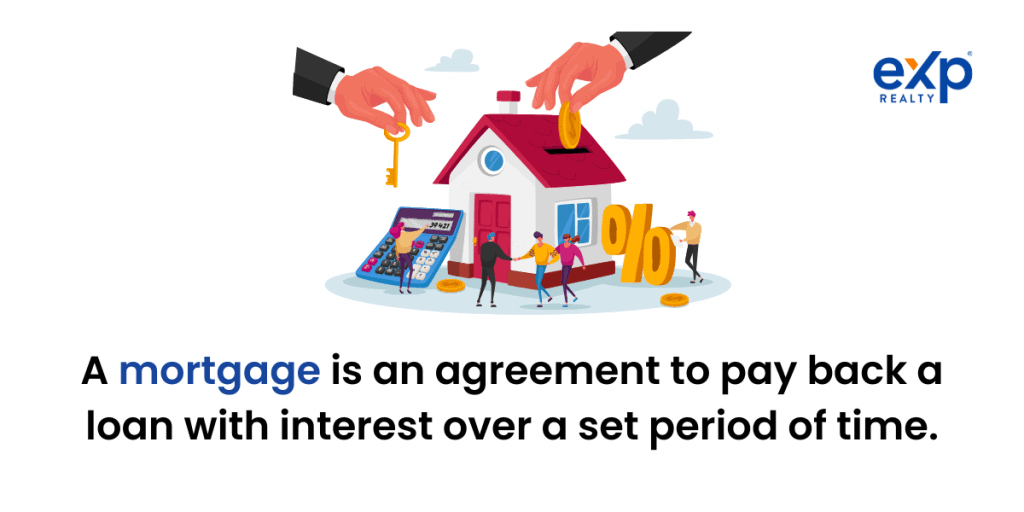Nowadays, many potential homebuyers face a burning question: “Is now a good time to buy a house?” With fluctuating housing market trends and economic uncertainties, making a sound decision can be daunting.
Timing is crucial, especially regarding such a significant financial commitment. To help you navigate this maze, this eXp Realty guide will tackle topics such as the factors to consider when buying a home, tips on how to time the real estate market, and more.
Buying a House in Today’s Market
Purchasing a home is not merely about finding the perfect fit in terms of space and design; it’s also about aligning with the broader real estate market conditions. If you understand the nuances in today’s dynamic housing market, you can distinguish between a lucrative investment and a potential pitfall.
The personal situation of most potential home buyers plays a significant role in the decision-making process. With mortgage rates witnessing both spikes and dips, ensuring that your monthly payments remain manageable is essential.

However, apart from your monthly mortgage payment, other factors like property taxes, closing costs, and potential fluctuations in housing prices also weigh in on the decision.
In such cases, a credit score is pivotal in determining the kind of mortgage loan you might qualify for. Borrowers with credit scores on the higher end of the spectrum tend to receive more favorable terms from lenders.
This means they might be eligible for lower mortgage payments and better loan options, further enhancing their buying power in the current market. Additionally, ensuring you manage your credit card bills on time and maintain low credit usage can improve your negotiation power.
The median sale prices of homes have witnessed upward pressure in some regions, while others offer many housing options due to an inventory surge. Potential buyers should explore the housing inventory of various areas before committing to any deal.
Having a skilled eXp real estate agent by your side can be invaluable, especially when navigating the intricacies of housing market conditions. They offer quality service, ensuring potential homebuyers are informed about all factors—from mortgage rates and credit score requirements to the market’s current pace.
Factors To Consider Before Buying a House
Before diving into the world of homeownership, it’s vital to understand the numerous factors at play. From your financial health to the intricacies of the real estate market, making an informed decision can make all the difference. Here’s a breakdown to guide potential homebuyers through the maze.
Financial Stability and Readiness
The journey to homeownership starts with a solid foundation of financial stability.
Your Current Financial Situation
Before taking the plunge, evaluate your savings, investments, and monthly expenses. Remember, purchasing a home isn’t just about the upfront costs; you’ll need to budget for monthly mortgage payments, property taxes, insurance expenses, and potential unforeseen repairs.
Your Credit Score and Debt-To-Income Ratio
A healthy credit score opens the door to better mortgage rates and terms. Simultaneously, lenders often use the debt-to-income ratio to gauge your ability to manage monthly payments effectively. A lower ratio indicates you’re not drowning in debt and can handle the financial responsibilities of owning a home.
Affordability and Budgeting for Homeownership
Beyond the purchase price of the house, factor in closing costs, homeowners’ association dues, and routine maintenance. Using tools like mortgage calculators can help prospective buyers determine how much home they can afford, considering all these additional costs and come up with a solid home buying budget.
Real Estate Market Analysis
Understanding the real estate landscape is critical to ensuring your investment is sound.
Current Market Trends and Conditions
Dive into the current housing market trends to determine whether it’s a buyer’s or seller’s market. This will give you a sense of your bargaining power and the potential price you might pay.
Supply and Demand Dynamics
A surplus in housing supply usually leads to a drop in house prices, providing a favorable environment for buyers. Conversely, high demand with limited inventory can push prices up.
Price Fluctuations and Market Forecasts
The real estate market is cyclic, with periods of growth followed by stagnation or even decline. Monitoring market forecasts and understanding potential price fluctuations allows you to time your purchase to maximize your investment.
Personal Circumstances and Long-Term Plans
Your personal life and future ambitions are significant in the home-buying decision.
Your Lifestyle and Future Goals
If you envision starting a family soon, you might want more space or proximity to good schools. On the other hand, being closer to urban centers might be more appealing if you’re a young professional.
Job Stability and Potential Relocations
There may be better decisions than committing to buying if there’s uncertainty in your career or the possibility of relocating in the next couple of years.
The Need for Space, Amenities, and Community Factors
Consider your ideal living environment. Do you want a backyard? Is a gym or community pool on your wishlist? Understanding what you want will help narrow down your options.
Other factors to consider include the potential for property appreciation, local property tax rates, and the overall vibe and safety of the neighborhood. Moreover, accessibility to essential amenities like hospitals, supermarkets, and recreational facilities can significantly influence the quality of life in your new home.
Tips on How To Time the Local Real Estate Market
Timing the local real estate market can provide significant advantages to prospective buyers. However, navigating market conditions can be complex. By following these key strategies, potential homebuyers, either first-time buyers or seasoned investors, can make informed decisions and capitalize on opportune moments in the market.

Conduct Market Research
To make a well-informed decision, it’s imperative to have an in-depth understanding of the local real estate landscape.
- Gather data on local home prices and sales trends: By analyzing housing prices and observing the dynamics over a period, you can gauge whether the market is on an upward trend, stabilizing, or declining.
- Examine the average days on the market and bidding wars: Properties quickly snatched up (low days on the market) or that experience intense bidding wars indicate a hot market. On the other hand, homes that linger on listings suggest buyers might have more negotiation power.
- Seek insights from real estate professionals and experts: Connecting with local real estate agents, especially those affiliated with platforms like eXp Realty, can provide invaluable expertise.
Identify Emerging or Declining Neighborhoods
Picking the right neighborhood can significantly impact the appreciation potential of your investment.
- Analyze neighborhood growth potential: Emerging neighborhoods often show signs of development, from new establishments opening up to infrastructure projects underway. Such areas can offer affordable options with high appreciation potential.
- Evaluate infrastructure development and amenities: Future developments, such as a new school, park, or shopping center, can boost a neighborhood’s desirability. Similarly, quality amenities like gyms, parks, and communal spaces can impact housing options and prices.
- Consider future market demand and desirability: Factors like accessibility to work hubs, public transportation, and lifestyle amenities can make a neighborhood more desirable in the long run. Additionally, understanding demographic shifts and major regional subgroups can provide insights into future demand.
Work With Real Estate Professionals
With their vast expertise and in-depth market knowledge, real estate professionals can be invaluable allies in your home-buying journey.
Find a Trusted Real Estate Agent
Leveraging real estate platforms can connect you to local experts who know the intricacies of the regional market, from current housing market trends to the nuances of individual neighborhoods.
Evaluate Their Knowledge of the Local Market
A seasoned agent should be able to guide you through market conditions, from inventory levels to median sale prices. They can also provide insights into market forecasts, giving you information to make an informed decision.
Understand Their Role in Negotiations and Transactions
A real estate agent not only aids in finding potential homes for sale but also plays a crucial role during negotiations. They ensure you’re getting the best deal, considering all the factors, from house prices to potential future developments in the area.
Consult a Mortgage Lender
One of the primary steps before venturing into the housing market is understanding your financial position about lenders.
Assess Your Borrowing Capacity and Loan Options
Different mortgage lenders will offer varying terms based on your credit score, income ratio, and overall financial stability. Tools like mortgage calculators can give an idea about potential monthly payments. Furthermore, various mortgage types have pros and cons, such as 30-year fixed-rate or adjustable-rate mortgages.
Obtain Pre-Approval for a Mortgage
A pre-approval is more than an estimate. It’s a commitment from a lender that they will lend you a certain amount under specific terms. This enhances your buying power and signals to sellers that you are a serious buyer.
Understand the Implications of Interest Rates and Loan Terms
The current mortgage interest rates, whether at an all-time low or showing signs of elevation, will directly impact your monthly mortgage payment.
Know Your Risk Tolerance and Timeline
Although real estate may seem a sound investment, it carries risks and opportunities that must be evaluated in line with personal investment strategies.
Assess the Potential for Short-Term and Long-Term Gains
Some neighborhoods or housing options might present quick appreciation due to factors like a sudden jump in inventory or significant infrastructure projects. In contrast, others are better suited for long-term growth.
Evaluate the Stability of the Housing Market
With the potential for economic uncertainty, it’s crucial to gauge if the housing market is experiencing a temporary surge or is poised for consistent growth.
Align Your Decision With Your Investment Goals and Timeline
Your situation, from job stability to life goals, should dictate your timeline in the real estate market. Your approach would vary considerably if you’re looking for a family home or a long-term investment property.
Key Takeaways
Is now a good time to buy a house? In the intricate dance of buying a house, timing is crucial. Here are the pivotal insights from this exploration:
- Understand the current real estate landscape: Whether it’s a buyer’s or a seller’s market, being informed about housing market trends and prices can significantly affect your buying decision.
- Financial preparedness is key: From assessing your credit score to understanding monthly expenses, potential homebuyers must be financially ready.
- Lean on professionals: Real estate agents and mortgage lenders offer invaluable insights.
- Personal considerations matter: Beyond market conditions, personal circumstances, from lifestyle choices to plans, play a pivotal role in the home-buying process.
While “Is now a good time to buy a house?” might seem daunting, it can be addressed with informed decision-making, understanding the real estate market conditions, and seeking expert advice.
Remember, buying a home is not just a financial decision but a significant life choice. Is now the right time for you to buy a home? Sign up to get alerts of new property listings when they come on the market
FAQs: Is Now a Good Time to Buy a House?
Navigating the complex world of real estate often brings forth numerous questions. Below are some of the most frequently asked questions concerning the current state of the housing market:
Is 2023 a good year to buy a house?
Like any other year, 2023 comes with its market conditions and economic indicators. While we’ve delved into various factors above, the decision to buy depends on current housing market trends, your financial situation, and broader economic conditions. It’s always wise to consult real estate professionals for insights tailored to your needs.
What is the best time to buy a house?
The best time to buy a house often depends on market conditions, personal finances, and individual goals. Historically, many believe spring and summer are peak buying seasons due to the influx of homes for sale. However, some find success in purchasing during fall or winter when there’s potentially less competition. Constantly monitor mortgage rates, inventory levels, and local market dynamics.
What time of year are house prices lowest?
House prices are typically somewhat lower during the late fall and winter months. This can be attributed to reduced buyer competition and decreased housing inventory. However, this also means there might be a lower range of homes to choose from.
What month are home prices highest?
Home prices often peak during spring and early summer, particularly between April and July. This is when many families aim to move so that they’re settled before the new school year begins. It’s also when properties generally look their best due to favorable weather.
Is it a good idea to purchase a home when a recession is imminent?
Buying a house before a potential recession can be a double-edged sword. While property prices might be lower and there may be more room for negotiation, economic downturns can lead to job losses and financial instability.
It’s essential to weigh the pros and cons, consider your job security, and evaluate your financial cushion. Consulting with financial advisers and real estate experts can provide a clearer perspective.





